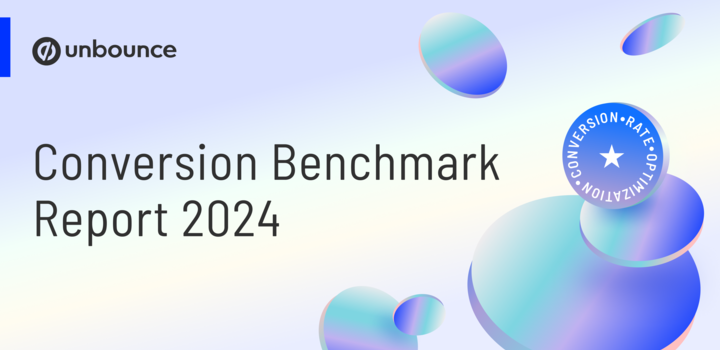Lack of Trust = Lack of Action; Launch of Trust in Advertising Study 2021
TORONTO, ON–Nielsen has launched the results of a global study into trust in advertising, designed to uncover consumer opinions on advertising globally. The study found that trust differs by age, who is in the adverts—with sports personalities fairing the best—and the impact of influencers. It also uncovered the subject matters that resonate most with consumers.
The study was undertaken with 40,000 individuals during August and September 2021 across EMEA, Asia Pacific, North America, and Latin America. It is part of a media research survey undertaken by Nielsen to better understand the advertising landscape, to help advertisers and businesses shape more effective advertising.
Key findings globally (see footnote for geographic break-out of data):
● Millennials (25-40) and Gen X (41-56) trust advertising the most. Those aged 65+, followed by Gen Z (15-24) and Boomers (57-66) have the least trust
● Men and women globally have similar overall levels of trust in advertising
● 89% of people most trust recommendations from people they know (word of mouth)
● Trust levels vary depending on industry type, with tobacco ads as the least trusted
● Brand sponsorship at sporting events ranked third-most trusted channel, with 81% either completely or somewhat trusting this channel
● 23% of people trust ads from influencers. Advertising and opinions about brands and products were less trusted when delivered via an influencer
● Generally humorous ads resonate more than ads that are action, sports, kids, car, sentimental, competitive, athletic or celebrity based. Exceptions include Korea and Saudi Arabia
● Health themes, real-life situations and value orientated ads also resonate more than those themed as sexual, car, competitive or sports.
The survey addressed the following topics:
● Expression toward advertising
● Comparisons of trust on earned vs. owned media and paid traditional vs. paid online/mobile
● How trust translates into action
● The types of advertising that resonate the most
● Types of advertising most trusted by category, and activities that consumers are ‘open to’ from advertisers.
Cathy Heeley, International Media Analytics Lead, Nielsen, commented: “This research gives us in-depth insight into consumer perception around levels of trust in media channels as well as into the types of messaging that resonates most. It comes as no surprise we all trust personal recommendations above and beyond any other channel. Human to human trust is fundamental to daily life. It is also no great surprise that over 78% of people trust ads on TV. Across the world people believe that ads on TV are run by legitimate businesses and so these are given credence over some of the newer forms of advertising.
“When it comes to messaging we see that humor is an important factor and it ranks third in terms of messaging that most resonates. However, given the challenges that we are experiencing the world over we are seeing that advertising messages need to be credible and depict real life. Health shines through as key in today’s world, but a bit of humor also helps.
“By exploring these key elements we can help advertisers and media owners better understand the drivers of trust and mistrust in advertising, better supporting them in defining content and audience strategies.”
 Paige Sontag Director, Client Strategy Nielsen Canada said: “It is essential for marketers to hone in on the key influencing factors that have the greatest impact on Canadians’ trust in advertising. From this research we know only 59% of Canadians trust the advertising that reached them completely or somewhat – a lower percentage than other global markets. When it comes to effective marketing in Canada, Canadians most trust recommendations from people they know, emails they signed up for, editorial content (such as newspapers), and branded websites. The message behind the advertising also has a direct and important impact on effectiveness. In Canada the messages that resonate most are based in humor, real-life situations, and value-oriented campaigns.”
Paige Sontag Director, Client Strategy Nielsen Canada said: “It is essential for marketers to hone in on the key influencing factors that have the greatest impact on Canadians’ trust in advertising. From this research we know only 59% of Canadians trust the advertising that reached them completely or somewhat – a lower percentage than other global markets. When it comes to effective marketing in Canada, Canadians most trust recommendations from people they know, emails they signed up for, editorial content (such as newspapers), and branded websites. The message behind the advertising also has a direct and important impact on effectiveness. In Canada the messages that resonate most are based in humor, real-life situations, and value-oriented campaigns.”
For further details or more details about the 2021 Trust in Advertising Study visit the Nielsen website.
The global highlights of the study are summarized here:
Age
● Millennials (25-40) and Gen X (41-56) trust advertising the most
● Those aged 65+, followed by Gen Z (15-24) and Boomers (57-66) have the least trust
Gender
● Men and women globally have similar overall levels of trust in advertising
Source of Message
● 89% of people most trust recommendations from people they know
Advertising Category
● Trust levels vary depending on industry type, with tobacco ads as the least trusted
● Brand sponsorship at sporting events ranked 3rd most trusted channel with 81% either completely or somewhat trusting this channel
Influencers
● 23% of people trust ads from Influencers
● Advertising and opinion about brands and products were less trusted when delivered via an Influencer
Content of Ads
● Generally humorous ads resonate more than ads that are action, sports, kids, car, sentimental, competitive, athletic or celebrity based. Exceptions include Korea and Saudi Arabia
● Health themes, real-life situations and value orientated ads also resonate more than those themed as sexual, car, competitive or sports. Here is the order for total global preferences of themes: –
1 Real-Life Situations
2 Health-themed
3 Family-oriented
4 Value-oriented
5 Humorous
6 Sports-themed
7 High-energy/action
8 Aspirational
9 Kids centered
10 Pets/Animals centered
11 Competitive
12 Sentimental
13 Celebrity endorsements
14 Athlete endorsements
15 Car-themed
16 Sexual
Regional variations
● Overall trust in advertising is weakest in Canada and Europe
Canada
● Canadians completely trust recommendations from people they know six times more than text ads on mobile phones. Canadians trust those recommendations 5.5 times more than online banner ads, ads from social networks and search engines and ads on mobile devices
● Lack of trust means a lack of action too. Almost two thirds of Canadians never take action from online banner ads and over half never take action from ads on mobile and ads before movies.
● More than 5x as many Canadians responded that Humorous (54%) ad messages resonate, compared with athletic endorsements (10%) and celebrity endorsement messages (9%).
● Health themed, real-life situations and value-oriented messages resonated 2x more than sexual and car-themed ads and 2x more than competitive and sports themed ads
Canada Demographics
● Gen Z in Canada is far less trusting of branded websites than their global counterparts with only 8% trusting branded websites completely versus 31% at a global level
● Boomers in Canada are far more trusting of consumer opinion posted online. 52% trust completely vs only 15% globally. They also are far more likely to trust ads on TV with 63% of Boomers trusting completely vs 17% globally.
● Millennials are far less likely to trust influencer marketing in Canada than the global average (10% trust completely in Canada vs 20% globally).
Additional Canadian Insights
· 59% of the respondents in Canada trust completely or somewhat in advertising. This is primarily driven by Millennials (21-35) followed by Generation X (35-49).
· Generally, Millennials (21-35) have the most trust in advertising of any other age cohort, with 62% of Millennial respondents in Canadian trusting completely or somewhat in advertising. Silent Generation (65+) is the least trusting in advertising, with 51% of Silent Generation respondents in Canadian trusting completely or somewhat in advertising.
· When considering age cohorts, Generation Z (15-20) is more likely to trust brand sponsorships in sporting events (72%) and ads before movies (71%) than any other age cohort. On the other side, Silent Generation (65+) and Baby Boomers (50-64) are more likely to trust ads in newspapers (73% and 69% respectively).
· 52% of the respondents in Canada always take action or sometimes take action because of advertising, whereas only 7% of respondents in Canada always take action. This is driven by Millennials (21-35) who are most action oriented.
· Millennials (21-35) are most likely to take action at 17%, followed by Generation Z (15-20) and Generation X (35-49) each at 12%. Baby Boomers (50-64) and Silent Generation (65+) are least likely to always take action, with 8% and 6% respectively.
· The types of advertising messages that resonate most with Canadian respondents are humorous (54%), real-life situations (47%), value-oriented (40%) followed closely by pets/animals centered (38%), family-oriented (36%), health-themed (34%).
About The Trust in Advertising (TIA) Study. Methodology:
● Part of a continuous study updated for 2021
● Conducted globally; includes the regions: Middle East/Africa, Asia Pacific, Europe, North America, Latam
● Field work for 2021 study conducted in August and September 2021
● 40,000+ respondents around the world participated in the research
● Enhanced to include new advertising types: Sports advertising and Influencers
About Nielsen
Nielsen shapes the world’s media and content as a global leader in audience measurement, data and analytics. Through our understanding of people and their behaviors across all channels and platforms, we empower our clients with independent and actionable intelligence so they can connect and engage with their audiences—now and into the future.
An S&P 500 company, Nielsen (NYSE: NLSN) operates around the world in more than 55 countries. Learn more at www.nielsen.com or www.nielsen.com/investors and connect with us on social media.




